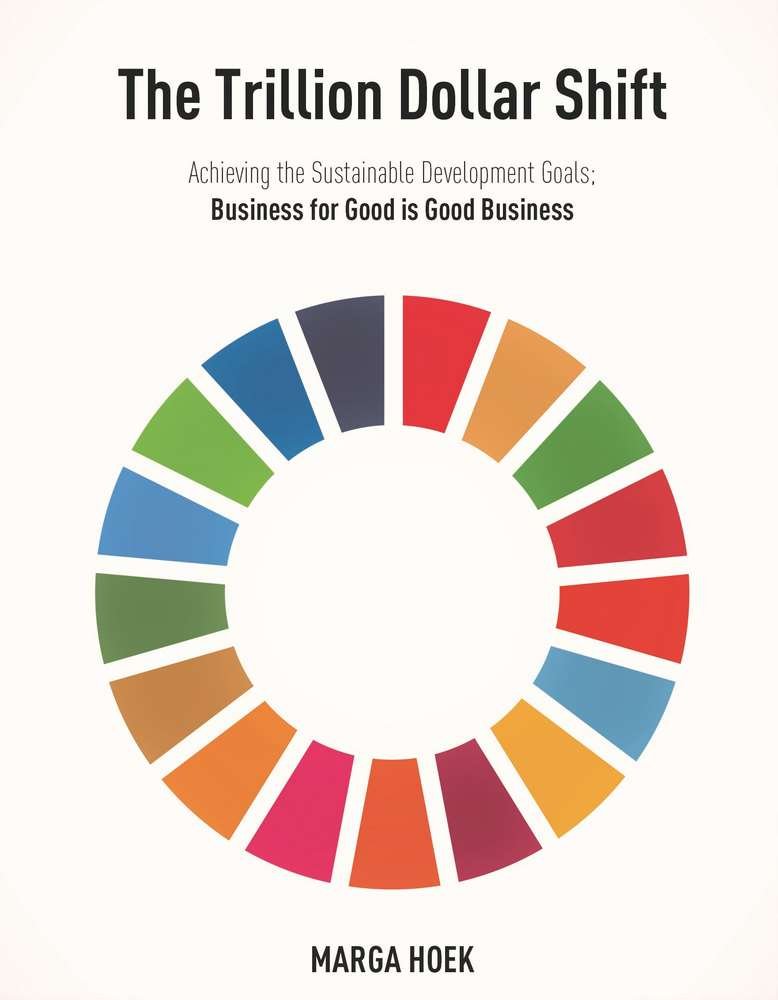The investment shift, how sustainability will impact banking
Published by Gbaf News
Posted on March 2, 2020
5 min readLast updated: January 21, 2026

Published by Gbaf News
Posted on March 2, 2020
5 min readLast updated: January 21, 2026

By Marga Hoek is a global thought-leader on sustainable business.
Technology was the biggest game-changer of the 2010s and it will continue to be one of the biggest drivers of the next decade. But the greatest shift will be the shift to sustainable business and capital. The numbers tell us that business will fail in a world that is falling apart due to climate change, resource scarcity, lack of drinking water and growing inequality. Public concern on the impact of climate change is growing rapidly and rightfully so. In the next few years this will accelerate. Regulatory pressures will increase and the demand for corporate companies to disclose climate and other ESG related risks will heighten. As a result, the impact of sustainability on investments will see tremendous growth over the next decade.
Sustainability will be both a risk and an opportunity for both banks, investors and related services. From the risk side, there is a need to adapt. The above creates what we call transitional risk, a risk that results from policy, legal, technology and market changes. On the opportunity side, it becomes increasingly clear that sustainable investments do not under-perform but outperform ‘mainstream’ investments and thus, there is a business reason to shift. Last but not least the new generations demand sustainable investment, banking and mortgage products and services will drive change throughout the financial sector.
Business for good is good business

Marga Hoek
Business and capital should want to achieve the UN’s Sustainable Goals to make the world a better place by 2030. The Sustainable Development Goals offer tremendous new market opportunities – $12 trillion by 2030 to be precise.
Being at the forefront of sustainability during the next decade will mean being on the winning side of business. This can be done with a positive business case: business for good is in fact good business, as my book The Trillion Dollar Shift explores.
So, how will sustainability impact investment over the next decade?
SDGs drive sustainable investment
The UN’s Sustainable Development Goals create much more demand for sustainability bonds and all kinds of products related to sustainable investing throughout the financial supply chain. There is a need for sustainable companies to invest in, a need for active funds as well as best in class funds so investors and pension funds can invest at scale, a need for data products as to determine companies’ sustainability scores as well as the knowledge to actually develop those.
Investors under increasing pressure
Regulatory pressures from the Paris Agreement, OECD, European Commission’s and other national bodies are growing.
As a result investors (of whatever kind) are now pushing companies to accelerate on sustainability progress and are keener to invest in sustainable companies – especially those tackling the climate crisis and moving towards a low carbon economy, which is seen as urgent
Fintech offers sustainable opportunities
Fintech is on the rise, and offers great opportunities for sustainability – Fintech and sustainability are actually the two major drivers of change in the financial sector. The shift to Tech for Good is crucial in the financial sector. Many investors, banks and related services are now trying to engage with such companies in order to bring tech for good to their clients, or to develop tech for good themselves. Be aware that Tech for Good is still rare in the sector, but we’ll see this development accelerating, as front-runners will get a big piece of the market.
FI Ant Financial is a brilliant example. It uses payment data to give customers, in addition to their savings account and outstanding credits, insight into their CO2 emissions. He or she can participate in a climate compensation programme, which already has 200 million active users.
The next wave – sustainable tech
Tech savvy sustainable companies will be in the next wave of companies that investors, especially Private Equity, will want to invest in. Bundles is a great example. This company offers pay-per-use washing machines, aiming to help customers to reduce their energy, water and detergent use.
Cleantech is accelerating
Cleantech is another fast-growing industry. The sector will grow tremendously in countries like Canada and become a significant part of their income – growing from $11.3 billion annually. Canada exports 52% of clean tech – 10% to the US and 42% to the rest of the world. Alongside the sector, and essential to the sector, is the growth of cleantech investments. In Canada, for instance, the cleantech investment sector is growing rapidly and that growth will accelerate. Private Equity firms and funds will grow exponentially. Arc tern Ventures, for example, Canada’s largest cleantech venture fund, recently reached their $200 million in commitments and will step up in the next phase.
Millennials & Gen Zs demand change
Both companies and investors are aware of the fact that millennials and Gen Zs will soon make up the majority of the workplace, customers and employees. 8 out of 10 millennials want to work at a purpose-driven company and they also want to buy sustainable products and services.
Business and capital will need to adapt and thrive, or deny and die.
Explore more articles in the Banking category











